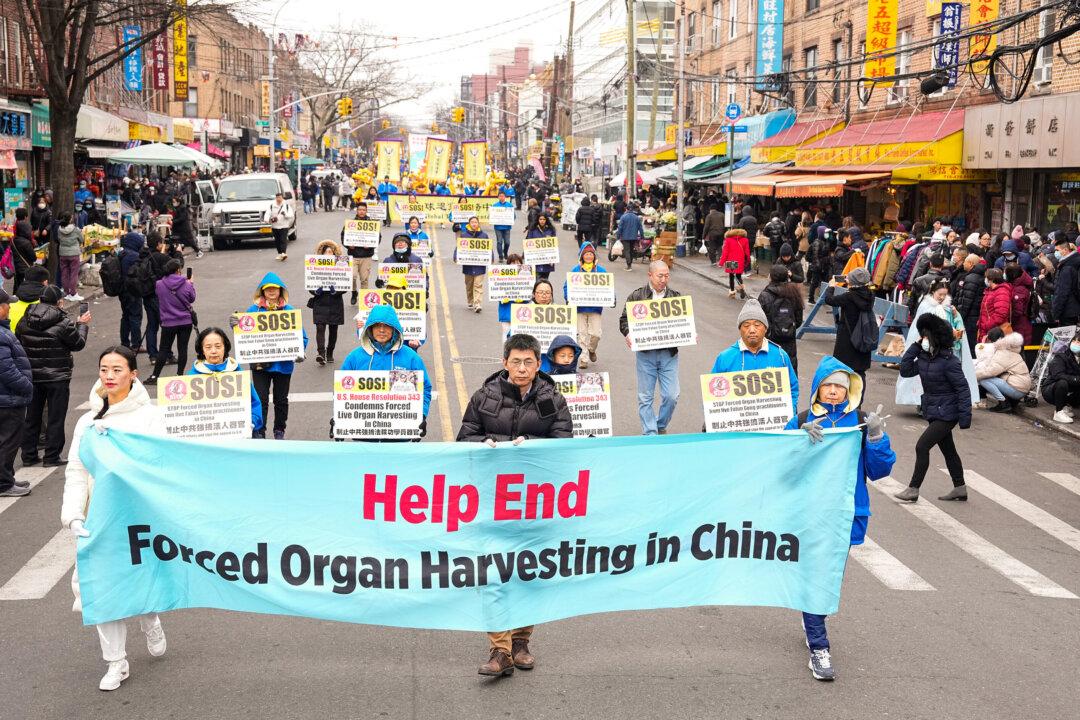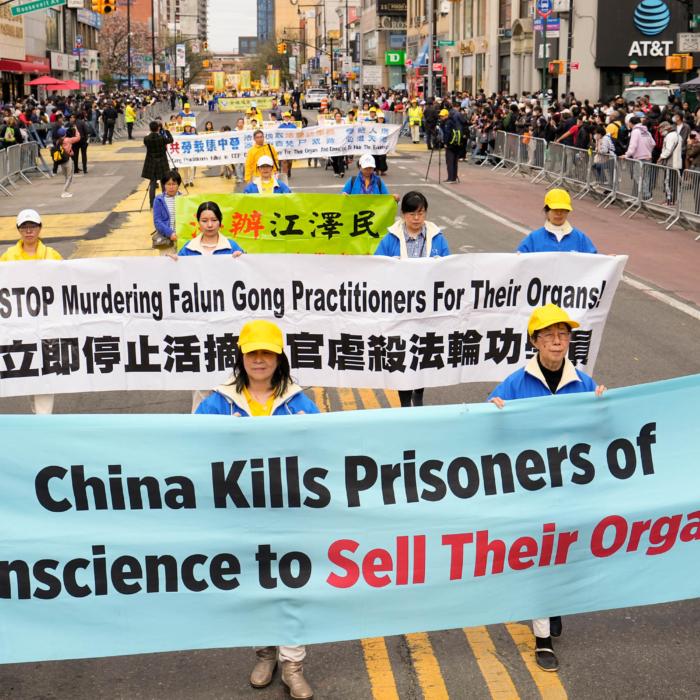The government has blocked the Lords’ attempt to push through a law aimed at ensuring forced organ harvesting is barred from the UK’s public supply chain on Wednesday.
MPs removed an amendment targeting the practice from the Procurement Bill for the second time after peers re-inserted it on Monday.
If the clause became law, it would have allowed a contracting body to exclude suppliers found to be involved in forced organ harvesting, which is defined as "killing a person without their consent so that their organs may be removed and transplanted into another person.”
Suppliers involved in the dealings of any devices, equipment, or services related to forced organ harvesting would also be excluded.
But ministers insisted the bill already allows forced organ harvesting to be excluded as professional misconduct.
The government, which currently has a 60-seat working majority, won by 80 votes despite pushback from Labour and the Scottish National Party. There is a possibility that the Lords will make a last-ditch effort to attach the amendment again.
Speaking before the vote, Cabinet Office minister Alex Burghart said everyone agrees that the “dreadful practice” of forced organ harvesting “has no place” in the UK’s public supply chains, but the clause is unnecessary.
“We believe that the existing exclusion ground of professional misconduct will cover this and will help contracting authorities do their bit to ensure that we do not have suppliers in our supply chains who are involved in these abhorrent practices,” Mr. Burghart said.
Labour MP Marie Rimmer disputed the claim, saying “certain conduct will absolutely not be covered by the existing provisions around professional misconduct.”
“Supply chains can be complex and improper conduct may often be one step too far removed from the crime for professional misconduct elements to be made out,” she said.
State-Sanctioned Force Organ Harvesting
The amendment was proposed in the House of Lords by Lord Hunt of Kings Heath, who has led the effort to combat complicity in forced organ harvesting in China, where state-sanctioned forced organ harvesting allegedly killed hundreds of thousands by removing organs from prisoners of conscience, such as Falun Gong adherents and ethnic minorities, including the Uyghurs.The sheer scale of the practice and the world’s reliance on Chinese products and the Chinese market mean it could be difficult to identify which medical suppliers haven’t knowingly or inadvertently been involved in the practice.
Arguing against the amendment, Mr. Burghart insisted forced organ harvesting is not considered a great risk to the UK’s public supply chain as the government is not aware of any suppliers that have been involved in the practice.
He also argued that requiring smaller businesses to make sure they are not connected to forced organ harvesting will place a “disproportionate” and “unjustified” burden on them.
It means “local authorities or NHS Trusts would need to undertake significant due diligence” when buying supplies including oxygen masks or IT equipment to make sure the entire supply chain is free from forced organ harvesting, and small businesses bidding for government contracts will have to know none of their customers have been enabling the practice, he said.
However, opponents have said evidence suggests British taxpayers’ money may have been entangled in forced organ harvesting.
“There are companies with substantial operations in the UK providing immunosuppressive drugs for transplants in China. There is evidence of companies dramatically raising their stake in the Chinese market over the past few years,” Ms. Rimmer said.
“Sources underground claimed CellCept, an immunosuppressive drug, has been used on Chinese prisoners for transplants, there is no evidence that these individuals consented [to donating their organs],” she added.
She also disputed the argument that the proposed measure is too much burden, saying the current version “simply gives discretionary powers to exclude a supplier from a procurement contract if there is a connection to forced organ harvesting.”
Chinese Cameras on ‘Sensitive’ Sites
Peers debated about a separate amendment on Monday that targeted Chinese surveillance camera brands such as Hikvision and Dahua, which are known for their involvement in mass surveillance, including in labour camps in Xinjiang.Like any organisation in China, the companies are also subject to the regime’s national security law which requires individuals and entities to “support, assist, and cooperate with national intelligence efforts,” sparking security concerns.
The government previously banned the installation of new Chinese cameras on “sensitive” public buildings, but Lord Alton of Liverpool’s amendment, which was removed would have required ministers to publish a timeline of removing such equipment—potentially tens of thousands of them—from all public buildings.
Discussing the issue in the Lords on Monday, Baroness Neville-Rolfe provided a clarification on what “sensitive sites” include, “which are: any building or complex that routinely holds secret material or above; any location that hosts a significant proportion of officials holding developed vetting clearance; any location which is routinely used by ministers; and any government location covered under the Serious Organised Crime and Police Act 2005.”
The minister made a further concession, agreeing to submit annual reports to Parliament about the progress of removing Chinese cameras from sensitive sites.
She defended the decision not to mandate the removal of these cameras from all public sites, arguing that places like recycling centres, leisure centres, schools, or hospitals “are not the sites that would typically be of interest to a hostile state.”
Citing some retailers’ decisions to ban Chinese-made CCTV for “ethical and security reasons,” Lord Alton expressed disagreement with the ministers’ argument, saying it would be “odd if supermarkets were ahead of public bodies in recognising the dangers posed by the [Chinese Communist Party’s] surveillance state.”
However, he welcomed the concessions made by the government and decided not to push further to re-insert his amendment.







